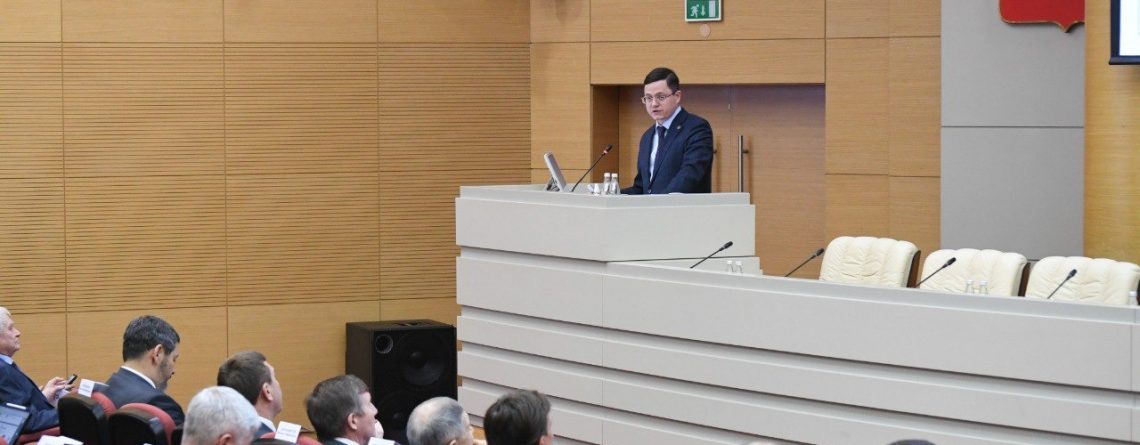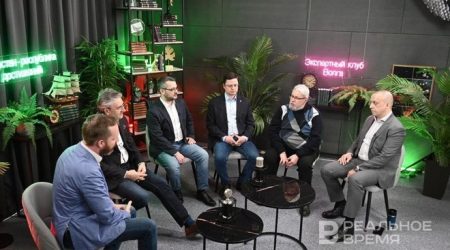Latest developments presented at meeting of Tatarstan Petroleum Chemistry Investment Holding
The meeting was helmed by Governor Rustam Minnikhanov.
Among the discussed issues were low-tonnage chemistry, asphalt technology, cloud storage, drone runways, and many more.
KFU was represented by Chair of the Department of Petroleum Engineering Mikhail Varfolomeev and Chair of the Department of Oil, Gas and Carbon Materials Technology Alim Kemalov. Dr Varfolomeev mentioned that the University is actively working on low-tonnage chemistry projects; as of now, about 80% of low-tonnage products are imported, which poses significant risks for the industry.
Among the innovations studied by KFU are surfactants, pre-crosslinked gel particles for fracking, hydrate formation inhibitors, de-emulsifiers, etc. All is aimed at enhanced oil recovery.
In cooperation with its industrial partners, in particular, Tatneft and Gazpromneft, the University works on low-tonnage chemistry projects, starting from lab research and up to pilot production and field testing. KFU has unique research teams and equipment for filtration experiments, reservoir fluid research, digital core sampling, and tomography.
“There is a wide range of equipment for the testing of field anti-corrosion, anti-deposition of asphalt-resin compound, and other types of reagents. A research center has been established at Tatneft in Almetyevsk, which also means an increase in Tatarstan’s technological potential,” said Dr Varfolomeev.
Speaking about the Center for Liquid Hydrocarbons, he noted that the Center has already streamlined pilot production of oil recovery catalysts, well treatment reagents, and other types of specialized chemical products. Many local oil giants and junior companies have shown interest.
Among prospective technologies Mikhail Varfolomeev singled out hydrate formation inhibitors for gas recovery in permafrost regions. Another one is a technology of cyclical reagent injection for enhanced recovery of low-permeable reservoirs. A line of products based on gel systems (acrylic chemistry) was created. Work is successfully underway to develop fracking chemistry, one of the main technologies for inflow stimulation (about 15-20 thousand operations per year), in which most of the components are foreign. It is planned to expand pilot tests in 2024 at the companies’ facilities. To make the development of specialized low-tonnage chemistry, chemoinformatics tools have been proposed to reduce the cost and increase the speed of development, which previously proved successful in pharmaceuticals, and today it has been scaled to oil and gas problems. Of note is positive experience in the development of chemoinformatics; today the results of research in this area have been applied in projects with oil companies Tatneft and Gazpromneft.
Alim Kemalov presented his report on asphalt improvement technologies for road construction. He suggested using adhesion additives for bitumen and stabilizing additives for crushed-mastic asphalt concrete. They should help in preventing rut formation and mixture delamination.
The Governor stressed that experimental infrastructure in the province should be developed further.








